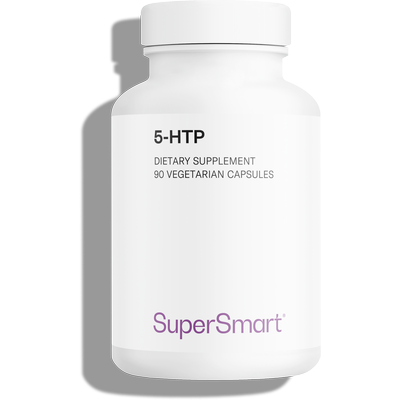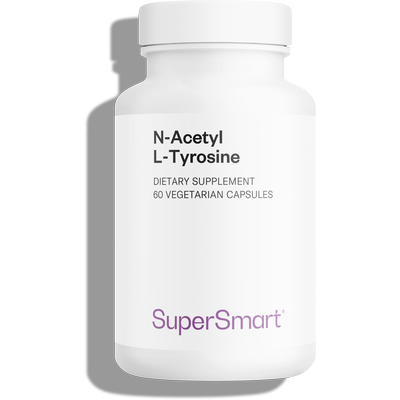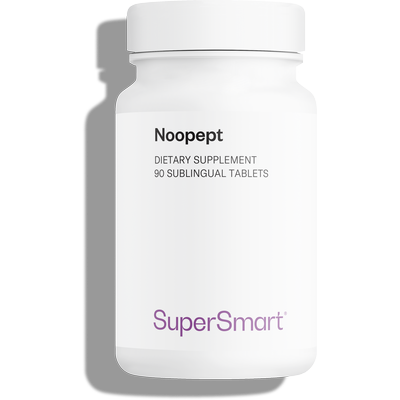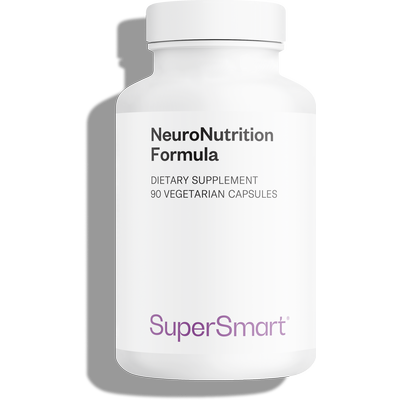26-02-2018
Why leave it till the last minute to take care of your brain?
 Our brains start to become less effective from the age of 20. Slowly but surely, our mental capacity decreases and yet it’s only when it’s too late, when memory problems have already appeared or are becoming worse, that we address the decline. Why is this?
Our brains start to become less effective from the age of 20. Slowly but surely, our mental capacity decreases and yet it’s only when it’s too late, when memory problems have already appeared or are becoming worse, that we address the decline. Why is this? Why do we spend an inordinate amount of time moisturising our skin, worrying about our appearance, having our hair done or building up our muscles, while at the same time forgetting about the most important part of the body – the brain? What is that prevents us from looking after our most precious organ on a daily basis? Why do we wait until the first signs of decline appear before taking action?
Making wise choices is not a universal trait
We don’t all share the same propensity for making sensible long-term decisions. Personality, education, parental influence, ability to resist immediate gratification and plan for the future1 all determine the choices we make. For some people, those choices are primarily motivated by the short-term pleasure to be gained from them, no matter the long-term consequences. Going to bed late to squeeze the most out of the day, constantly putting off giving up smoking, sitting in front of a screen instead of getting out in the fresh air … It’s not necessarily a question of burying their heads in the sand, or even ignorance: fundamentally, such people know the risks they’re taking, but they fail to judge just how beneficial or disadvantageous these decisions are for their future. It’s as if they view immediate satisfaction through a magnifying glass.
Are the theoretical gains really worth the daily effort involved? So what if you don’t live to a ripe old age? Isn’t it better to live for the moment rather than waste time thinking about what’s ahead? Most of the people who turn a blind eye to the future sooner or later live to regret it. Indeed those who do make the right choices for their long-term health regret not having done even more. Sometimes, those of the ‘live for the moment’ persuasion like to quote the example of that passing acquaintance who lived the healthiest of lives only to fall victim to the worst fate possible. But this view is as sad as it is distorted! The cases they quote are exceptional and don’t reflect reality.
The truth is that when we reach the age of 60 (which comes round faster than you think), we invariably regret the short-term choices made in our youth. We’re confronted with having to deal with the damage caused by such choices, made at an age when little thought was given to the consequences for our older, future selves. There was a window of opportunity to take care of what mattered most, but regrettably, we failed to take it.
Neuro-tonics aren’t natural, are they?
Many people don’t actively stimulate their brains because they think that to do so is unnatural. On the face of it, they have a point, even though it’s not unreasonable to think that our forebears had their own secret ingredients to help them age better. But it’s the logic linking ‘neuro-tonics’ with ‘unnatural’ that’s erroneous.
In reality, humans have developed hundreds of ‘unnatural’ techniques to stimulate and optimise cognitive function. At school, our teachers are continually improving our brain function by imparting huge amounts of information and teaching us the best ways of using it. Every day, we master countless techniques acquired through learning and we use tactics and even substances (such as coffee) to improve our alertness and performance. Do we not question whether these are natural? We need to be realistic here: our houses, clothes and even our food no longer correspond to conditions that are natural to our species. And there’s not very much we can do about it now …
On a different note, we all know that cognitive function can be maintained and stimulated with the aid of physical activity, good quality sleep and proper nutrition – all brain-stimulating methods that can indeed be said to be natural. The interesting thing is that scientists have recently shown that the mechanisms involved here are the same as those through which nutritional supplements act.
They all produce biochemical changes which help to both prevent cognitive decline (chronic effects) and induce positive mood and behaviour (acute effects). In the case of physical activity, changes to peripheral metabolism affect the availability of certain neurotransmitter precursors which cross the blood-brain barrier and increase cerebral synthesis of the corresponding neurotransmitters2-3.
Exercise produces an increase in the incorporation of branch-chain amino acids into oxidative processes. This increase is accompanied by a rise in the production of tryptophan in the liver and an improvement in its transfer to the brain. Tryptophan promotes the production of serotonin, a neurotransmitter that positively affects mood, sleep, ability to remember, cognition and protection against attacks on the central nervous system4.
Nutritional supplements such as L-Tryptophan or 5-HTP are based on this same mechanism: by providing the body with precursors that can cross the blood-brain barrier, such as tryptophan, they promote the production of certain neurotransmitters and thus improve both behaviour and long-term stimulation of the brain. It’s a similar story with N-Acetyl L-Tyrosine : it provides the brain with tyrosine which promotes the synthesis of several catecholamines (epinephrine, norepinephrine and dopamine) which play a role in the direction of new stimuli, alertness, memory and learning5.
Physical activity is also known to act on other neurochemical pathways, particularly production of a cerebral growth factor called brain-derived neurotrophic factor (BDNF). This substance stimulates neurogenesis - the production of new nerve cells by the brain - which helps stem cognitive decline and improve long-term memory. Here again, supplements such as Noopept, one of the best neuro-stimulants on the market, form part of a chain reaction, stimulating the production of this cerebral growth factor.
All these ‘neurotonic’ supplements, which draw on natural mechanisms of action, are of significant interest given that nowadays, our brains are unlikely to be as stimulated as those of our distant ancestors. If you think about it, their sources of stimulation must have been significantly greater than ours. They had to be on the constant lookout for external signs (visual, olfactory or sensory) of potential prey or predators, they had to identify and recognise hundreds of plants and fungi, and cover huge distances each day to provide for their needs …
The fear of ‘interfering’ with the brain
There’s one more reason why we’re reluctant to boost our cognitive ability. We talk about the brain as being the most complex, important and fragile organ in the body: it’s therefore understandable that we’re afraid to interfere with it. If you’re suffering from a serious neurodegenerative disease, you’re likely to put up with the side-effects of a drug that helps you fight the disease, even if they’re significant. But it’s different if you’re in good health and simply want to maintain your brain function and slow down its decline.
In any case, there are currently no drugs available aimed at boosting or stimulating cognitive function in healthy individuals, because our society is more focused on treatment than prevention. Which is why we are often surprised to find students, sportspeople or those with mentally-demanding jobs (such as surgeons or pilots) turning to drugs originally designed to treat other diseases – with all the risks that that entails!
It’s another reason why it’s a good idea to opt for supplements such as Neuro-Nutrition Formula or Neurex™ which have mechanisms of action that are more subtle, less direct and specifically designed to stimulate and regenerate cognitive function.
Meanwhile, think hard about the consequences of your current choices. Are they motivated solely by short-term logic? Do you ever think about what your actions might mean for your future self? Could you really bear it if your friends continued to be quick-witted and alert while you struggle to remember their names?
References
1. B.-B. Chen, W. Qu, Life history strategies and procrastination: The role of environmental unpredictability, Personality and Individual Differences 117 (2017) 23–29
2. Chaouloff F. (1989). Physical exercise and brain monoamines: a review. Acta Physiol. Scand., 137 : 1-13. [
3. Guezennec C.Y. Duclos M. (2010). Le sport change aussi la tête. La Recherche, 40 : 48-51.
4. Birdsall TC. 5-Hydroxytryptophan: A Clinically-Effective Serotonin Precursor. Altern Med Rev 1998;3:271-80.
5. Mahoney, C. R., Castellani, J., Kramer, F. M., Young, A., and Lieberman, H. R. Tyrosine supplementation mitigates working memory decrements during cold exposure. Physiol Behav. 11-23-2007;92(4):575-582.
Order the nutrients mentioned in this article
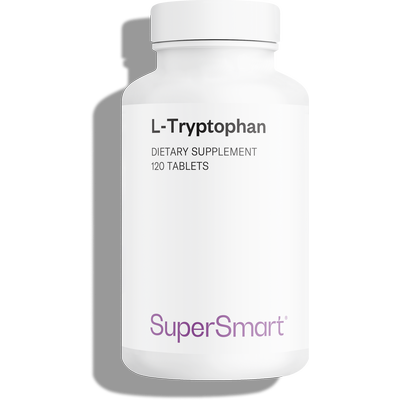
Essential amino acid and precursor of serotonin, melatonin and niacin.
www.supersmart.com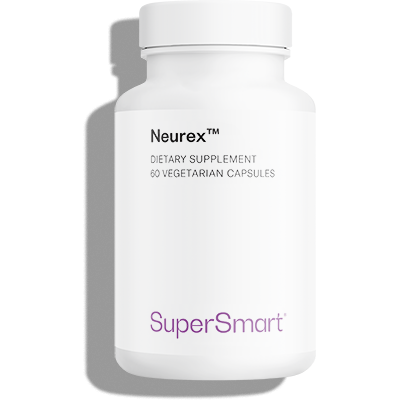
A powerful, synergistic formulation to prevent or delay cerebral degeneration.
www.supersmart.comFurther reading
28-08-2019
Though many people are not aware of choline, it is actually recognised as an essential nutrient by the prestigious US National Academy of Medicine 1...
Read more10-10-2016
In India, turmeric is used to treat a wide variety of ailments including gastrointestinal problems, inflammation, headaches, infections and colds. It is turmeric’s curcuminoid content,...
Read more28-06-2017
As the control centre of the central nervous system, the brain has to deal with a constant flow of data, processing millions of bytes of...
Read more© 1997-2026 Fondation pour le Libre Choix
All rights reserved
All rights reserved
Free
Thank you for visiting our site. Before you go
REGISTER WITHClub SuperSmart
And take advantage
of exclusive benefits:
of exclusive benefits:
- Free: our weekly science-based newsletter "Nutranews"
- Special offers for club members only



